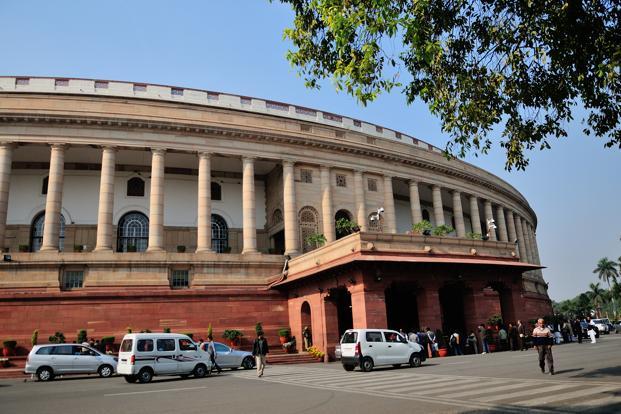Now Reading: Why Indian Government Needs Leader of the Opposition
-
01
Why Indian Government Needs Leader of the Opposition

Why Indian Government Needs Leader of the Opposition
Introduction
Who is Leader of the Opposition?
The Leader of the Opposition is that the politician who leads the official opposition in either House of the parliament of India. The Leader of the opposition is that the parliamentary chairperson of the party with the foremost seats after the govt party. The Leader of the opposition is a statutory post defined under the definition clause Section 2 of The Salaries and Allowances of Leader of Opposition in Parliament Act, 1977.
“Definition.—In this Act[2], “Leader of the Opposition”, in relation to either House of Parliament, means that member of the Council of States or the House of the People, as the case may be, who is, for the time being, the Leader in that House of the party in opposition to the Government having the greatest numerical strength and recognized as such by the Chairman of the Council of States or the Speaker of the House of the People, as the case may be.
Explanation.—Where there are two or more parties in opposition to the Government, in the Council of States or in the House of the People having the same numerical strength, the Chairman of the Council of States or the Speaker of the House of the People, as the case may be, shall, having regard to the status of the parties, recognize any one of the Leaders of such parties as the Leader of the Opposition for the purposes of this section and such recognition shall be final and conclusive”.
To claim the position of “official opposition” in either house of the parliament, a party has to secure 55 seats (10%) of the seats in Lok Sabha and 25 seats (10%) of the seats in Rajya Sabha (Mavlanker Rule).The Leader of the Opposition is recognized by the chairman of the Rajya Sabha or the speaker of Lok Sabha.
And it is also provide that the Leader of the Opposition in the House of Lok Sabha shall inducted as a member of the selection committee in the appointment of Central Vigilance Commissioner and Vigilance Commissioner, when no such Leader has been so recognized, include the Leader of the single largest group in opposition of the Government in the House of the People.[3]
Leaders of the Opposition in Lok Sabha & Rajya Sabha
The parliament had recognized no Leader of the Opposition until 1969. In Lok Sabha, the post was also vacant between 1980 and 1989 and at present, since 2014. In Rajya Sabha , the Leader of Opposition should satisfy three conditions, namely,
1. he should be a member of the House
2. of the party in opposition to the Government having the greatest numerical strength and
3. be recognised by the Chairperson of the Rajya Sabha (Vice-president of India)
Current Leader of the Opposition in Rjya Sabha is Ghulam Nabi Azad from Party Indian National Congress from 8 June 2014 to till now.[4]
Main Content
During 16th Lok sabha, the then Speaker was Sumita Mahajan, who refuse to recognize the congress party as leader of opposition. Last year in 2019, MP Adhir Ranjan Chowdhury was chosen by the Congress as its leader within Lok Sabha. The new appointed Speaker Om Birla has not appointed him as the Leader of Opposition. A petition has been filed in the Delhi HC seeking a direction to the Lok Sabha Speaker to appoint a Leader of Opposition for the 17th Lok Sabha contending that denying the second largest party the leadership in the parliament sets the wrong precedence and dilutes the democracy.
Brief history of opposition parties in India
For a healthy Parliamentary democracy it is always considered essential that there should be a strong opposition. But in India the position has been quite different. It may be said that for quite some time it was believed that opposition’s role is only negative but with the passage of time it is appreciated all over, that it has positive role to play in national politics. Hence one of the biggest parliamentary achievements of our country is that the role of the opposition has been formally recognized and given a due place in parliamentary system.
Post independence
After the independence of India, INC enjoyed great respect and confidence of the people. It was difficult to differentiate them from authority. When the first general elections were held in the country Congress under the leadership of Pt. Nehru swept polls both of the Centre as well as the States. By this time, however, Shyama Prasad Mukherjee founded Bhartiya Jana Sangh as an opposition party. The Socialists under Ashok Mehta and the Communists also began to oppose the Congress party on its policies and programmes. By 1962 elections the Communists, the Socialists, Swantantra Party and Bhartiya Jana Sangh had started making their dents.
Present status
The Congress has won 52 Lok Sabha seats in the just-concluded Lok Sabha election and remains the main Opposition party in the house. However, like the 16th Lok Sabha, the Congress has not qualified to have a Leader of Opposition in the 17th Lok Sabha. In the 16th Lok Sabha, the largest party in the Opposition, the Congress, had 44 seats. After careful consideration, it was decided not to recognise the party’s leader as LoP. Now, the matter needs to be revisited in the context of the 17th Lok Sabha.
The Congress demanded an amendment to the relevant laws to allow the single-largest party in the Opposition to send its legislative party leader to attend meetings of key appointment panels. Amendment was made with regard to the appointment of the CVC and also the CBI director but the Lokpal Act was not modified to bring the single-largest Opposition party on board if it did not secure 10 per cent seats in the Lok Sabha.
Significance of Leader of the Opposition
Leader of the Opposition plays an important role in providing practical criticism of the ruling party. Consultation of the leader of the Opposition also required at the time of important appointments. There is a great responsibility of office of the Leader of the Opposition. It is also said that Leader of Opposition are called as the ‘Shadow Prime Minister’. The Leader should be ready to take over if the government falls in any adverse circumstance. In case of vacant position of such Leader of the Opposition, It will weaken India as the Opposition will not be able to put up a unified front against the ruling party. The leader of the opposition plays an important role in bringing cohesiveness and effectiveness to the oppositions functioning in policy and legislative work. It also helps in bringing neutrality to the appointments like institution of accountability and transparency such as CVC, CBI, Lokpal, CIC, etc. The other role of the leader of Opposition is to watch for the violation of rights of minorities. They can also demand debates on such crucial issues, when the government is trying to slide away without parliamentary criticism. Therefore, the Leader of the Opposition must be familiar with all the mechanism of working of ruling government and all the tricks of skilled parliamentarian. All in all the main function of the opposition part is to check policies during question hour, provide fair criticism , has right to check expenditure, attract media and press and act as monitor over ruling party. All these power are given under constitution. Public Accounts Committee is there whose chairmen are none other than Leader of the Opposition to check the expenditure of the ruling party.
Last year in Rafale case, Rahul believed Rafale was a scam and perhaps as he claimed in different public rallies in the run-up to the Lok Sabha election in 2019. This belief landed Congress Party in big problem which is evident from the result of the election also because there was no proper fact or report to support their statement. But in February, 2019 the Comptroller General of India (GAC) pointed out several issues with NDA’s deal that could make the government sweat. There are several such examples which shows the significant role of leader of opposition in our Indian government.
Reforms requires in Leader of the Opposition
No matter whosoever gets the majority, the Leader of the Opposition is critical to effective functioning of the opposition in the Parliament. Now that there is a law recognizing the Leader of the Opposition, passed by the Parliament, it has to be enforced and it can’t be overlooked or undermined, no matter what the flexibility or ambiguity that exist in the legal framework. There arises a drag when no party in opposition can secures 55 or more seats. In such situations, the numerically largest party in the opposition should have the right to have a leader recognized as leader of the opposition by the speaker.
Conclusion
Under India’s almost unique system of state, the Leader of an Opposition features very special responsibility towards the Parliament and to the state. During circumstances like foreign danger or also in matters affecting the security and safety of the realms the Leader of the Opposition plays an vital role in the ruling Government. While he remains a critic he must during a sense be, a partner and even a buttress of the Govt to which he is opposed. This dual responsibility he must discharge with fidelity.
.
[1] BA+LLB(H.), School of Law , Galgotias University
[2] The Salary and Allowances of Leaders of Opposition in Parliament Act, 1977 Act No. 33 Of 1977
[3] Section 4 of The Central Vigilance Commission Act, 2003 ( Explanation)
[4] Leader of the Opposition (India),
https://en.wikipedia.org/w/index.php?title=Leader_of_the_Opposition_(India)&oldid=980733357
(Last visited Oct. 3, 2020).








